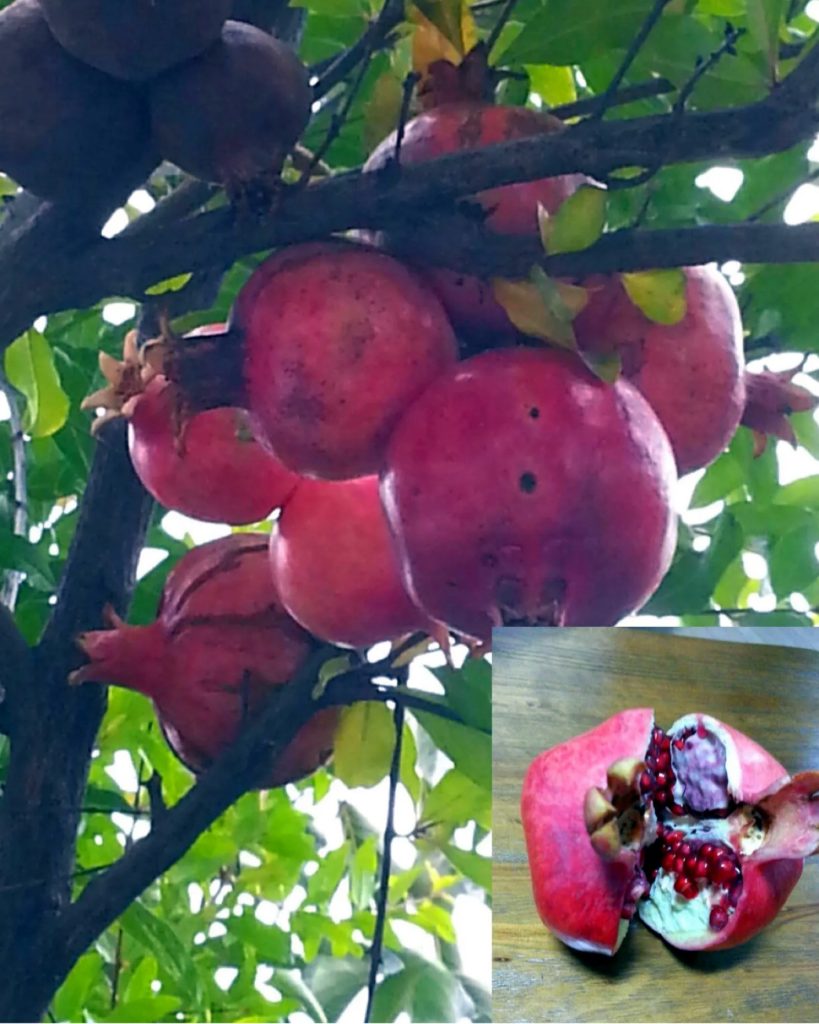
When I was a child, I heard that pomegranates tasted like human flesh, so I found them rather unsettling to look at. Later, I learned it was just a superstition, but it left a strong impression on me when I was a child, and it was only recently that I ate pomegranate for the first time. Kishimojin is enshrined at the shrine I visited during my child’s Shichi-Go-San festival, and she holds a pomegranate in her hand. The reason for this is based on an anecdote in which the Buddha admonished Kishimojin, who was kidnapping and eating human children, saying, “Pomegranates taste similar to human flesh, so if you feel like eating human flesh, eat that.” The connection between pomegranates and humans goes back to ancient times, even as far back as ancient times, possibly arriving in Japan via the Korean Peninsula by the 9th century. Pomegranates are rich in nutrients and are said to have health and beauty benefits, especially for women, and have even become popular as “women’s fruits.”
小さい頃、ザクロは人の肉の味がすると聞かされていたので、ザクロを見ると気味悪く思っていました。その後、それは全くの迷信であることを知りましたが、子供の頃に染み付いた印象は強く、ザクロを初めて食べたのはごく最近です。子供の七五三でお参りした神社には鬼子母神が祀られていて、手にはザクロを持っています。その理由は、人間の子どもをさらって食べていた鬼子母神にお釈迦様が「ザクロは人の肉に似た味だから、人の肉を食べたくなったらそれを食べなさい」と諭した逸話に基づくそうです。ザクロと人との関わりは古く、紀元前からで、日本にも9世紀には朝鮮半島経由で渡来していたそうです。ザクロは栄養豊富で、特に女性には健康や美容に効果があるとされ、「女性の果実」とブームになったこともありました。
